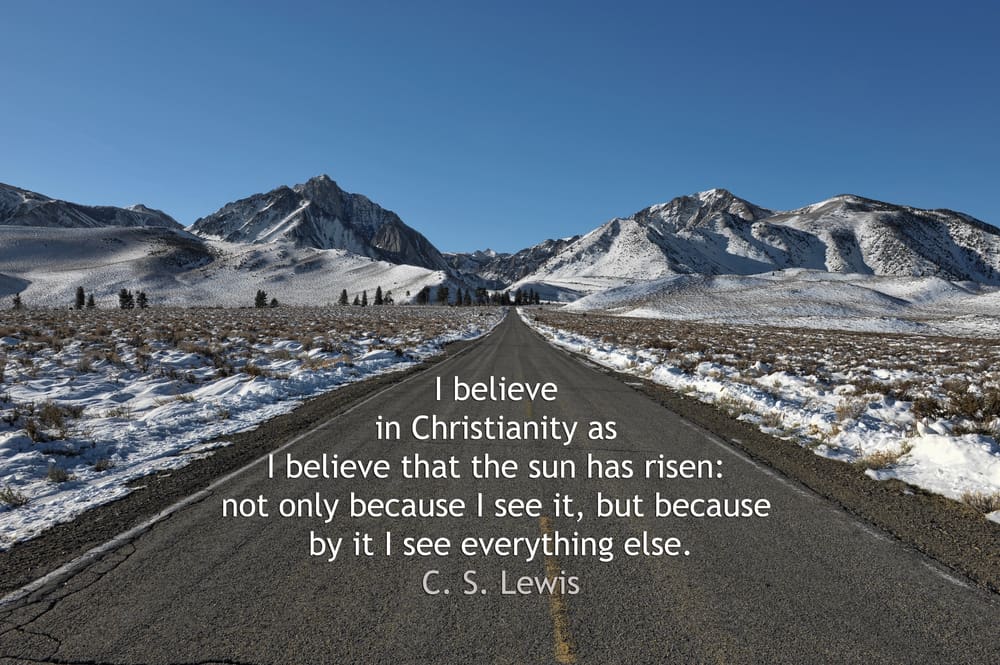Helping or Enabling? A C.S. Lewis-Inspired Look at Modern Homelessness
I love to read. It is one of my favorite pastimes. Those who know me often ask for book recommendations that I have found helpful in my work with the homeless, but they are surprised by my answer. I think it’s because they expect some scholarly work of counseling wisdom, or something written by a sociologist or theologian. I have plenty of those on my shelves, but in the end, I often recommend one of my favorite works of fiction by C.S. Lewis titled The Great Divorce.
In The Great Divorce, Lewis presents a fictional narrative where souls from Grey Town (a metaphor for hell or purgatory) are given a chance to journey to the outskirts of Heaven and choose whether to stay (by letting go of their sins) or return. The story is full of conversations between “Ghosts” (souls clinging to sin or self-deception) and “Solid People” (redeemed spirits inviting them into Heaven).
The entire story feels like an encapsulation of my experience with the homeless at the Gospel Rescue Mission. Not only because those whom we are attempting to minister to, the homeless, are being challenged to come out of the shadow lands into the real world where reality is both hard and beautiful. But also, because many of the arguments that the Ghosts in the story employ to explain why they can’t remain with the Solid People, “it’s too hard”, “I’m being victimized by being here”, “you don’t understand me”, and so on, are exactly those we hear from the homeless. One of the interactions in the story that stands out in particular has real application for communities trying to engage with the challenges that homelessness represents.
The quote comes during an exchange between one of the Ghosts and a Solid Spirit. A particular ghost refuses to let go of her identity as a grieving mother, using her sorrow as a way to control and manipulate others. She even demands that her son (who has already passed into Heaven) be “sent down” to her — suggesting that she would rather reject Heaven than let go of her grief and her power over others through it. Consequently, she would rather possess her son in Hell than let go of her self-pity and thereby join him in Heaven.
It’s in this moment that the Solid Spirit says:
“There is but one good; that is God. Everything else is good when it looks to Him and bad when it turns from Him. And the higher and mightier it is in the natural order, the more demoniac it will be if it rebels. It is not out of bad mice or bad fleas you make demons, but out of bad archangels. The false religion of pity… is the archangelic sin.”
What Lewis Is Saying
Lewis is warning that even the most noble human emotions—like love, pity, and compassion—can become twisted if they are separated from God. When pity is used not to uplift or heal, but to manipulate, justify sin, or avoid truth, it becomes destructive.
He calls this “the archangelic sin” because it’s a corruption of something great, just as Satan was a great being who rebelled and fell. So false pity isn’t harmless—it’s potent and dangerous. The Solid Spirit goes on to say, “Pity was meant to be a spur that drives joy to help misery. But it can be used for a kind of self-indulgence. We must learn to love God more than the earthly object of our pity—and pity will become a demon the moment we give it the authority of a god.”
Every virtue when untethered from other virtues and ultimately from Almighty God, become anti-virtues. The more powerful the virtue, the more powerful of a monster it can become if it is disconnected and ungoverned by other virtues. So when love, pity, and compassion for the homeless are given at the expense of the rest of our neighbors, these virtues actually become evil and unvirtuous. This is the idea that Lewis was getting at and it is one that we should deeply consider.
The Great Divorce is one of Lewis’ shortest and easiest works to read, and although he wrote it in 1946 it is a timeless piece that is applicable for our day.
Brian Bouteller
Grants Pass Gospel Rescue Mission


